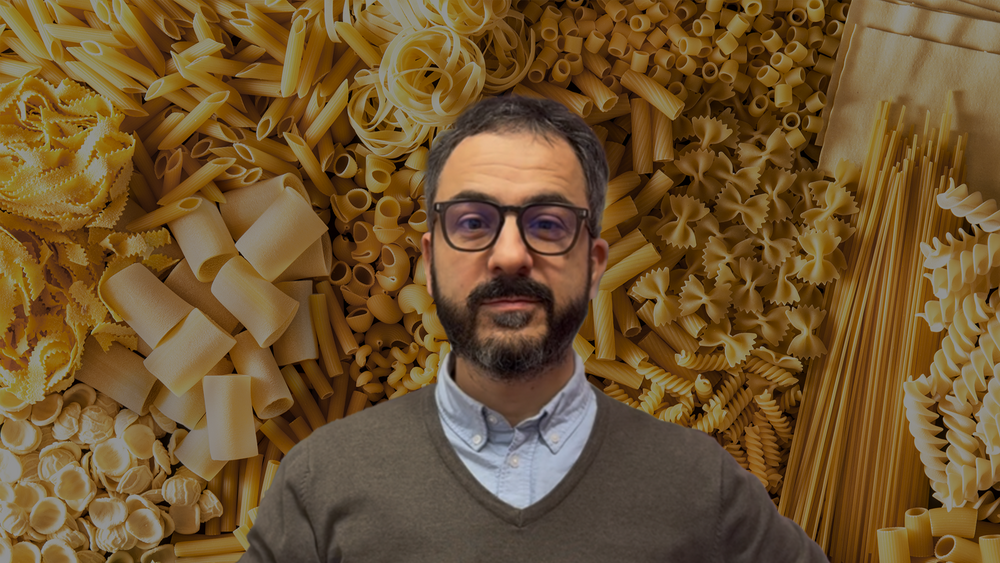Pasta – not just food, but a way of life
“In Italian culture, people love gatherings. Pasta is a bit of an excuse to spend quality time with a loved one. The best ingredient in spaghetti is company” – says Dr Cavallo. In Italy, eating isn't just a biological activity, but a social one. Shared meals strengthen bonds and eating alone is considered unusual. As the scientist underlines “in Italy, it's rare for anyone to cook spaghetti just for themselves – they always wait for others.”
Energy, flavour and... a philosophy of simplicity
Pasta is a practical dish. “You don't need three days like in the case of bigos. It's quick, simple and offers endless possibilities” – explains Dr Cavallo. Italians proudly emphasise that pasta can be used to create almost anything – from classic spaghetti alla Bolognese to cold pasta salad, or insalata di pasta.
From a scientific perspective, it's also a source of energy. There's a reason athletes eat pasta before competitions: the carbohydrates it contains provide long-lasting fuel for the body.
The myth of Marco Polo and the history of pasta
A popular myth claims that Marco Polo brought pasta from China. However, as Dr Cavallo explains, this is more of a legend than a fact. Although Italians like to repeat this story, the first evidence of pasta on the Apennine Peninsula dates back to before the famous Venetian traveller's expeditions. And the fact that pasta “took root” perfectly in the local climate is a matter of Italian temperament and sunshine.
350 types of pasta and each is significant
It's no exaggeration to say that Italians have more types of pasta than coffee. According to the Italian Ministry of Agriculture, there are over 350 varieties of pasta – from long pasta (pasta lunga) like spaghetti, trenette or linguine, to short pasta (pasta corta) like rigatoni, penne or fusilli. And importantly, each type has its own purpose.
– “We don't make pesto with spaghetti. Trenette – flat, eggless – goes well with pesto. And carbonara? We could argue about whether it's better with spaghetti or rigatoni?” – laughs Dr Cavallo. For Italians, the combination of sauce and pasta shape is almost a sacred rule. After all, as they say, form must harmonise with taste.
Pasta from a supermarket or from one's grandma's kitchen?
Even though more and more Italians are buying pre-made pasta, Dr Cavallo nostalgically recalls the days when his grandmother would knead the dough for tagliatelle from eggs and flour every Sunday. “Anyone who still has a grandmother like that is lucky” – he says. The modern pace of life isn't conducive to home cooking, but tradition remains in hearts and in pots.
Al dente, or sanctity
If you want to avoid Italian wrath – NEVER OVERCOOK PASTA. – “Cooking pasta for 20 minutes is torture. In Italy, we say that this tortures the pasta. The pasta must be al dente – slightly firm” – warns the scientist.
For an Italian citizen overcooked pasta is like cold coffee – simply an insult to tradition.
And what is Dr Cavallo's favourite pasta?
– “It depends on the day” – he admits with a smile. “I like spaghetti al pesto, but also spaghetti con ragù – a sauce made with five types of meat that simmers for hours. Women used to stir it all Saturday and Sunday to keep it from burning. It's hard work, but the result is indescribable”.
Pasta – the Italian art of living
Pasta isn't just food. It's a lifestyle that, as Dr Cavallo says, means attention to detail, balance and the pleasure of simple things. Because the Italian la dolce vita begins with a plate of spaghetti.
Buon appetito!
Interviewer: Kacper Szczepaniak, Centre for Brand Communications, University of Lodz
Edit: Press Office, University of Lodz

